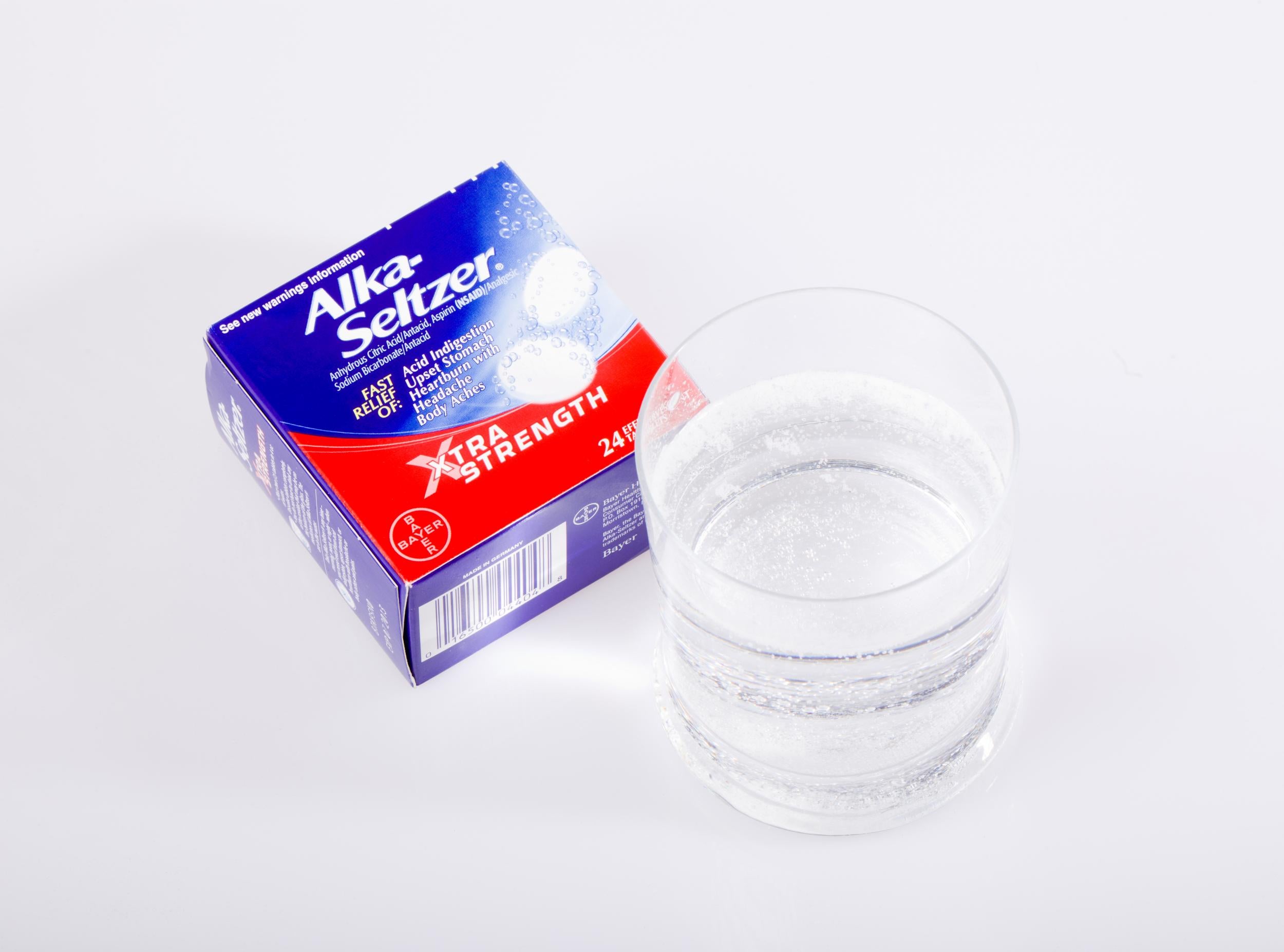Hidden salt in cold, heartburn and indigestion remedies needs health warning, researchers say
Elderly people 'likely to take their salt intake way above what it should be, leaving them at a greater risk of stroke or heart disease,' campaigners warn

Health groups have called for action on hidden salt in popular remedies for indigestion, colds and heartburn after an investigation found the daily maximum dose of Alka-Seltzer contained the equivalent of 20 bags of crisps.
A report by Which? Magazine found a host of products which could tip users over their daily recommended salt intake.
Health campaigners warned this could increase the risk of strokes and heart attacks, particularly in products like soluble painkillers which may be taken regularly, or among patients with other health conditions.
In many soluble medicines or effervescent tablets, sodium bicarbonate salt is a key ingredient which allows it to be rapidly dissolved in water.
Which? says this should be listed clearly on remedies in the same way as nutritional labelling on food.
Revealed: the salads that contain more salt than crisps
Show all 2The NHS recommends adults consume no more than 6gs of salt a day, but the maximum daily dose of Alka-seltzer, a common remedy marketed for upset stomachs, heartburn and headaches, would deliver around 150 per cent of their intake.
It contains 1.2g of salt per tablet, and if taken for the maximum eight times in a day would amount to 9.6g, this is roughly the same as eating more than 20 bags of Walker’s ready salted crisps.
Other products such as Beechams Cold Relief Orange, and heartburn medication Gaviscon Cool Liquid contained the equivalent of six bags of crisps.
Manufacturers said these soluble medicines provide an alternative for people who cannot easily swallow tablets and weren’t intended for long–term use.
However campaigners said the issue of hidden salt needed to be raised, and said some products – such as effervescent vitamin supplement Berocca which contains 11 per cent of an adults daily salt intake – are intended for daily use.
Professor Graham MacGregor, chair of Action on Salt, said: "This is really quite a serious problem which is hidden.
“Many of the people who take these medications are elderly and it is likely to take their salt intake way above what it should be, leaving them at a greater risk of stroke or heart disease.
Harry Rose, editor of Which? Magazine told The Telegraph: “The salt content in medicines and supplements should be made clear on the packaging and not buried in a leaflet inside, so that people can make informed decisions about their purchases.”
John Smith, chief executive at the Proprietary Association of Great Britain, said these products were for “short-term relief” and information on appropriate use is contained in the packaging.
“The availability of soluble medicines provides an alternative choice for people who can’t, or don’t like to, swallow tablets or capsules,” he added.
“The Which? comparison of salt content in soluble products, versus a packet of ready salted crisps is not an appropriate or fair comparison.
Subscribe to Independent Premium to bookmark this article
Want to bookmark your favourite articles and stories to read or reference later? Start your Independent Premium subscription today.

Join our commenting forum
Join thought-provoking conversations, follow other Independent readers and see their replies